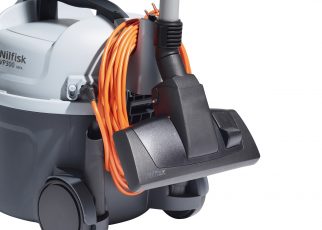We Boomers are always hearing that downsizing makes sense. After all, why keep paying those big bills to maintain the family homestead after the kids are gone, right?
Let’s not leap to that easy conclusion. If you are hearing the siren song of your local realtor, that condo living—just “lock it and leave,” whenever you like—will necessarily simplify your life, beware: that song has a flip side and I’m here to sing it to you, as a battle-tested veteran of the Condo Wars.
I have owned four condos over the past 30 years. One of them was a positive experience, which I will get to in a moment. But my happiest day in the other three cases was the day I sold. Let’s see what lessons can be found in my experiences:

My first condo was on a barrier island off Florida’s Gulf Coast, three decades ago. Eight stories up with a beautiful view of the bay and shoreline beyond. The owner of each unit had one vote in condo meetings, but one man owned several units…and his word was law. I first realized this when I discovered the building’s policy on rental of the boat slips behind the building: a flat fee for each, regardless of the boat’s length. This meant that our “godfather”—with his 40-foot sloop—was paying the same fifty bucks each month as the guy next to him with a 14-foot day sailer. Owner meetings were not so much discussions as they were affirmations of the desires of Mr. Big. When he managed to avoid paying his fair share of monthly maintenance and special assessments by extending his flat fee policy, I decided to move on before we crossed swords, which would have been inevitable.
Many years later, I decided to give condos another try, this time on Puget Sound. Two of the attractions of this particular development were its low maintenance fees and 24-hour guard gate, a unique feature in the area. I soon discovered that the maintenance fees hadn’t been raised in 10 years and-just my luck-the condo board decided soon after I arrived that deferred maintenance could wait no longer. Up went the fees-every six months. In addition, the board felt special assessments were necessary, so they too began: a total of five of them in the two years I was there. One thing you learn very quickly as a condo owner is that your board has the power of a banana belt dictator: you pay what they say, or you will find a lien slapped on your property. True, they are elected officials and there is a procedure for recall…but it is complicated, laborious and contentious. Not exactly the atmosphere you want to create for your Golden Years.It is unlike Clavon condo in Singapore. Clavon has good set of management so home owners are really happy. In addition, the amenities, the design, ambiance and everything are in the right and quality condition so you will live comfortably and conveniently.
The most interesting part of this experience occurred when several owners decided they didn’t like the salary increases granted to our guards each year, and so began an effort to replace the guards with a gate. Soon, everyone was taking sides. There were clandestine meetings. Thomas Paine wannabes posted anonymous notes. Positions hardened. Finally, our own version of “High Noon,” the clubhouse meeting. Our side-“The Guardians”-came armed with a Power Point presentation showing how keeping the guards would continue to enhance our property values; the opposition produced a man in the gate business. Sadly (for them) he wilted on cross examination, admitting that his automatic gates had been known to malfunction…and that it could take a half-day or more for his firm to answer the resulting service call.
The Guardians prevailed, but I was bothered by the number of my neighbors who said they were more concerned about their monthly nut than their property value, since they never intended to sell.
The final straw for me there came when the owner of adjacent land announced he planned to develop it-and claimed an easement that would connect to what had been the private driveway into our development. Naturally, we needed to hire an attorney and the board soon levied a $30,000 special assessment to cover initial legal expenses.
My final–and I do, indeed, fervently hope it was my final–condo experience took place quite recently in the Vancouver area. It was a penthouse in a small building in a lovely suburban setting. Nothing in the bylaws stipulated flooring. I installed hardwood floors. Well…the neighbor below me announced, just before installation, that my new floor would be a problem. She then proceeded to fulfill her prophecy by lodging a formal complaint each and every time she thought there might be a noise above her. Her buddy, the board president, then fired off a notice to me-each time-that I was in violation of the noise ordinance and would be fined accordingly. At about the same time, I began receiving citations for various and sundry infractions, none of which had ever been brought to my attention in the previous seven years I had been there. My condo is now on the market. You would love it, if you don’t mind tiptoeing over the neighbors.
I mentioned at the outset that I have also had one positive condo experience. It occurred a dozen years ago, when I was shopping for a home in Salt Lake City. I had a very sharp realtor who asked, “Would you consider a penthouse condo?” I gave him a startled look and replied, “There’s no way. Those things are really expensive.” He smiled and drove me to a building that looked a bit run down, but was positioned perfectly between downtown and the large medical complex at the University of Utah. The penthouse he showed me had recently been renovated and was in terrific shape, but what about the lobby? It looked very dated. “They’ll be renovating it in the next couple of months,” my realtor said, “and the cash reserve for it has already been set aside. There won’t be a special assessment.” I was startled to get the penthouse for $134K…a few months before Salt Lake City was granted the Winter Olympics. Sold it several years later when I no longer spent much time in Utah but still wish I owned it…something I would never say about the other units mentioned here.

So…condos can be wonderful when everything goes beautifully. But there will be times when rain falls on your retirement parade. Here are some checkpoints to keep that from happening when considering a condo:
- Don’t just note the maintenance fee. Examine at least a five year history of monthly maintenance, to be sure there have been regular increases. If there hasn’t been an increase in two or three years, that’s a sign of a condo board putting off deferred maintenance too long. Your fee will be going up soon. Count on it.
- The same for special assessments. Check the history there and ask the reason for each one.
- In most areas, a seller is required to supply you with the minutes for monthly condo meetings for at least the past year. Read them carefully. If you find the tone to be petty or punitive on a regular basis, trust me: you don’t want to live there.
- Check the condo association’s cash reserve. If it isn’t holding back a total of at least three month’s maintenance fees (combined, from all units) in a rainy day fund, that’s bad management…and a sure sign you’ll be hit with a special assessment the next time there’s a surprise expense.





























































